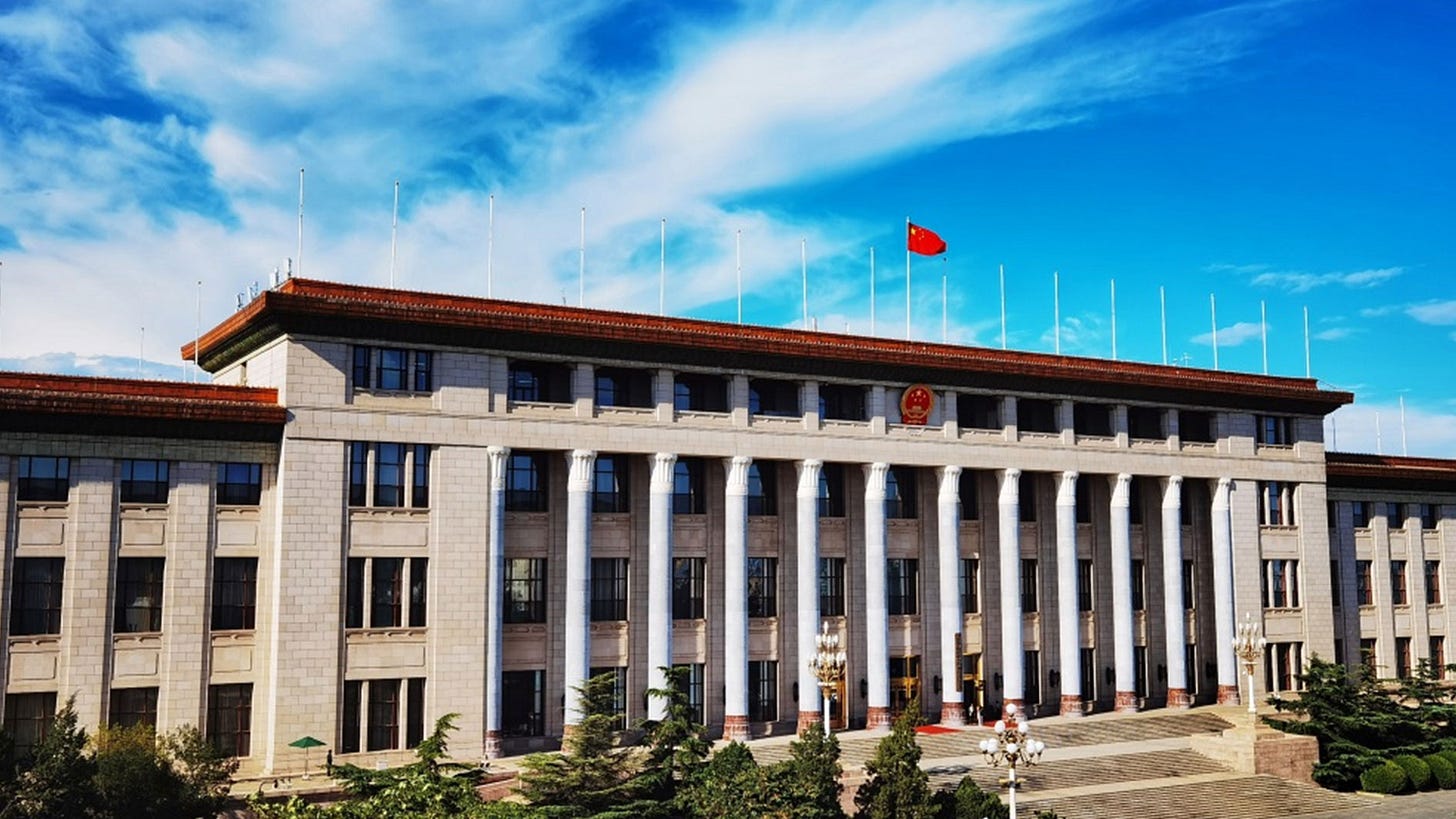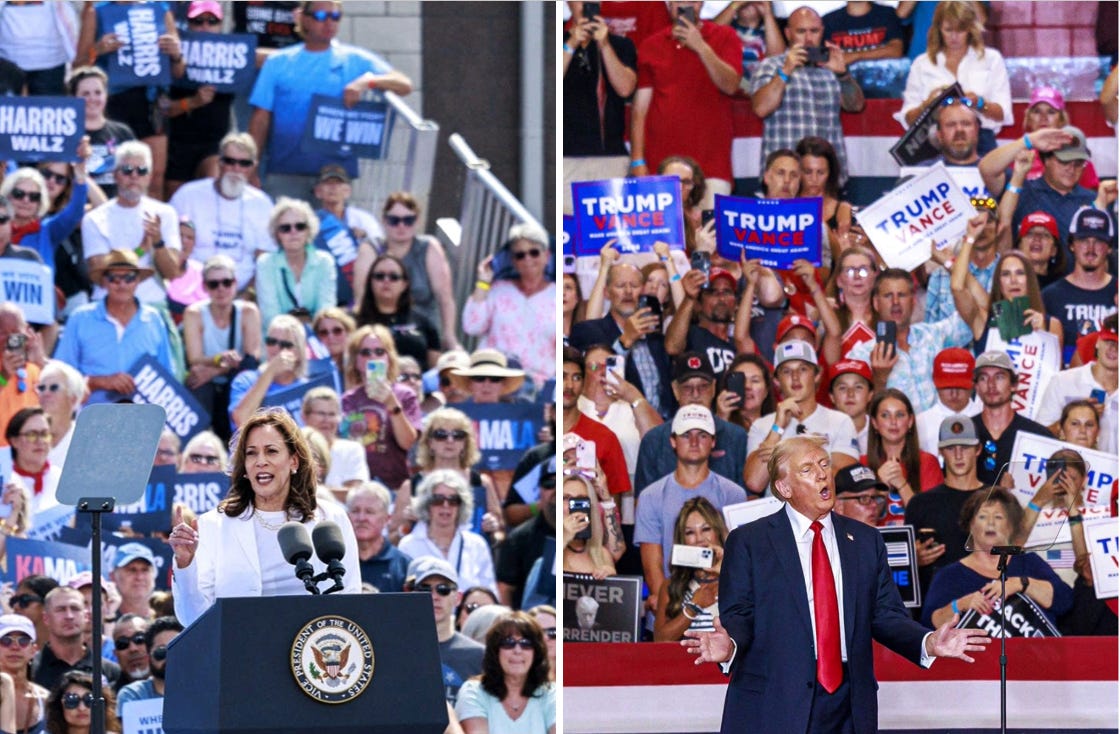Why China Trains Leaders While America Elects Performers
One system selects for competence, the other rewards charisma
I. The Real Difference Between Leadership and Popularity
In China, when someone rises through the ranks, it usually means more responsibility and heavier work.
In America, when someone wins an election, it often means more airtime and more followers.
One system builds administrators. The other breeds influencers.
So let’s ask the real question: which system produces people who can actually run a country?
II. How Chinese Officials Rise: A Structured Path of Merit
China’s official promotion system is not built on luck. It’s built on institutional discipline, performance evaluation, and loyalty to policy goals. The process is predictable, structured, and based on work results.
Every level has its path: township, county, city, province, then central government. Each step requires evaluation. Political alignment is the first gate. A candidate must follow central policy, show administrative skill, and maintain a clean record.
But political loyalty is not enough. Officials must deliver. Economic growth, social stability, environmental results, and public satisfaction are all part of the scorecard. Only those who meet targets and avoid scandals move upward.
The Organization Department conducts multi-stage reviews. There are public consultations, peer assessments, and party committee votes. The procedure may look bureaucratic, but it serves a clear purpose: to find people who can actually manage.
Even more, there are built-in tests. Young officials start as “selected graduates,” sent to rural towns to prove themselves. Those who succeed move to higher posts. Some take fast-track opportunities like anti-poverty projects or infrastructure programs. Failures are eliminated early.
That is how the system filters talent from the bottom up.
III. Inside the Cadre Pipeline
The typical career path for a Chinese official is long and demanding. A university graduate enters through the selection program. The first assignment is usually in a rural township or county office. After several years, strong performers become deputy township heads or county officials.
From there, a capable few move into city-level roles, managing budgets, industry, or development zones. At the provincial level, they are tested again on larger projects, urban planning, transport, or energy.
After that comes the central level, where experience and stability matter more than charisma. Each promotion usually takes five to ten years. Every stage includes evaluations, peer reports, and background reviews.
It’s not glamorous. It’s not fast. But it’s a ladder built around competence.
IV. America’s Political Logic: When Governing Becomes a Popularity Contest
Now compare this to the United States.
There, political success depends on popularity, not performance.
In modern America, elections have become a public relations contest. Candidates raise millions in campaign money, dominate news cycles, and fight for viral clips. The one who entertains better, wins.
Real governance skill? It barely matters.
You can be a brilliant speaker and still know nothing about policy. You can sell hope without ever running a city, a company, or even a meeting.
America’s media-driven system rewards visibility. A candidate spends half their time fundraising, a quarter performing on camera, and whatever is left pretending to govern. The result is predictable: constant polarization and zero progress.
Elections turn into theater. Voters pick the loudest voice, not the most capable mind.
V. The Tradeoff: Elite Selection vs. Mass Appeal
Let’s be honest. China’s system is not perfect. It can produce risk-averse officials who follow the book too closely. Metrics can turn into formalism. But these are management issues; they are fixable within the system.
In contrast, America’s problem is structural. Its entire political process is built on emotional marketing. It produces leaders skilled in self-promotion, not administration. The focus is not on solving problems, but on staying popular.
So while China’s bureaucracy selects people who can deliver results, America’s democracy selects people who can deliver sound bites.
VI. Two Systems, Two Outcomes
Say it plainly. One country chooses leaders who know how to manage. The other chooses celebrities who know how to sell.
A government is not a talent show. It’s a serious institution that requires competence, stability, and long-term vision.
When a system turns politics into entertainment, the country becomes the stage, and the people become the audience.
China’s cadre system might look rigid, but it builds professionals. America’s electoral circus looks free, but it breeds chaos.
One is about governance. The other is about performance.
And history will decide which one endures.
VII. Closing Reflection
At the end of the day, it’s not about which system sounds better in theory. It’s about which one works.
Meritocracy may look less exciting than democracy, but it keeps the machine running.
Popularity wins headlines. Competence keeps the lights on.



This is the best comparison of how complex governments are built in different countries I’ve ever heard. I never thought China would become the far superior system to the United States 👏👏🇨🇦
too often true, unfortunately.